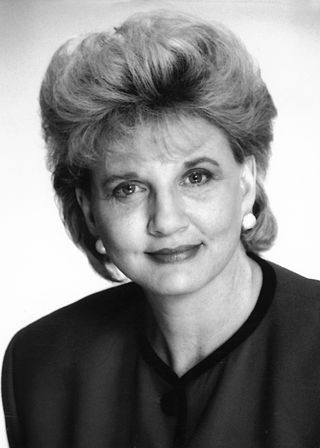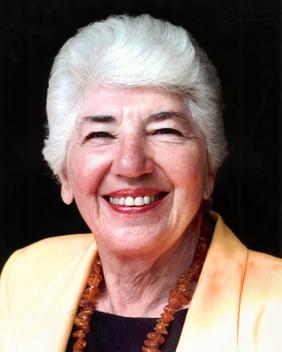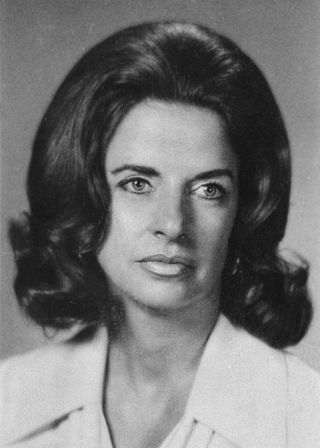Related Research Articles

Stillwater is the tenth-largest city in the U.S. state of Oklahoma. It is the county seat of Payne County, Oklahoma. It is located in north-central Oklahoma at the intersection of U.S. Route 177 and State Highway 51. As of the 2020 census, the city population was 48,394. The Stillwater Micropolitan Statistical Area had a population of 78,399 according to the 2012 census estimate. Stillwater was part of the first Oklahoma Land Run held on April 22, 1889, when the Unassigned Lands were opened for settlement and became the core of the new Oklahoma Territory. The city charter was adopted on August 24, 1889, and operates under a council-manager government system.

Oklahoma State University–Stillwater is a public land-grant research university in Stillwater, Oklahoma. OSU was founded in 1890 under the Morrill Act. Originally known as Oklahoma Agricultural and Mechanical College, it is the flagship institution of the Oklahoma State University System that holds more than 35,000 students across its five campuses with an annual budget of $1.7 billion. The main campus enrollment for the fall 2019 semester was 24,071, with 20,024 undergraduates and 4,017 graduate students. OSU is classified among "R1: Doctoral Universities – Very high research activity". According to the National Science Foundation, OSU spent $198.8 million on research and development in 2021.

Faye Wattleton is an American reproductive rights activist who was the first African American and the youngest president ever elected of Planned Parenthood Federation of America, and the first woman since Margaret Sanger to hold the position. She is currently Co-founder & Director at EeroQ, a quantum computing company. She is best known for her contributions to family planning and reproductive health, and the reproductive rights movement.

Mary Bernice Shedrick is a politician from the U.S. state of Oklahoma. Shedrick represented Oklahoma State Senate District 21 from 1980 to 1996. In 1994 she was a candidate for Governor of Oklahoma. Shedrick is now a part-time Administrative Law Judge in Payne and Logan counties and is a member of the Oklahoma Ethics Commission.

Betty Carman Boyd was a longtime Tulsa television personality and a member of the Oklahoma State House of Representatives. Considered a pioneer for women in both fields, Boyd began her career in television in 1955 and was elected as a state legislator in 1990, serving until 2000.
Dr. Cynthia S. Ross, better known as Cindy Ross, is a fifth generation Oklahoman whose work in higher education and administration lead to her pioneering roles for women. She is known primarily for her service as the first female president of Cameron University.
Valree Fletcher Wynn was the first African-American professor at Cameron University from 1966 until her retirement in 1985. Wynn became the first African-American to serve on the Board of Regents of Oklahoma Colleges in 1986 and served as the president from 1988–1989. She was the recipient of many awards and was inducted into both the Oklahoma Women's Hall of Fame and the Oklahoma Higher Education Hall of Fame.
Della Cheryl Warrior is the first and only woman to date to serve as the chairperson and chief executive officer for the Otoe-Missouria Tribe. She later served at the president of the Institute of American Indian Arts, finding a permanent home for the institution as well as helping to raise over one hundred million dollars for the institution over a twelve-year period. Warrior was inducted into the Oklahoma Women's Hall of Fame in 2007.

Nancy G. Feldman was a civil rights activist and longtime educator from the U.S. state of Illinois. Feldman taught at the University of Tulsa for thirty-seven years and lectured across the United States and internationally. Feldman was inducted to the Oklahoma Women's Hall of Fame in 1995. Her advocating for the expansion of art education in Tulsa public schools remains one of her biggest legacies. Feldman and her husband traveled to some of the most remote locations in the world during their retirement and worked to connect Tulsa with the world through the Tulsa Global Alliance.
Dana Tiger is a Muscogee artist of Seminole and Cherokee descent from Oklahoma. Her artwork focuses on portrayals of strong women. She uses art as a medium for activism and raising awareness. Tiger was inducted into the Oklahoma Women's Hall of Fame in 2001.

Carolyn Thompson Taylor is an American academic and politician who served in the Oklahoma House of Representatives from 1984 to 1992. Before running for office, Taylor taught AP government at Norman High School from 1979 to 1984. While in the House, she was chair of the Education Committee and Appropriations Sub-Committee on Education. She was a principal author of numerous landmark education bills involving both Higher Education and Public Schools. She also authored legislation concerning health care for children and family leave. While in office she was an adjunct professor at Oklahoma Baptist University and the University of Oklahoma. After leaving office, Taylor was vice president of academic affairs at the University Center of Tulsa and later a distinguished professor of political science at Rogers State.

Joan Hastings, was a politician from the U.S. state of Oklahoma. Elected to the Oklahoma House of Representatives in 1975, Hastings served district 67 until 1984. After serving in the legislature, Hastings served for 16 years as Tulsa County Clerk, retiring in 2001. After retiring from public office, Hastings worked in real estate in the Tulsa area. She is an inductee of the Tulsa Central Hall of Fame.
Bernice Compton Mitchell was the first African American woman to be elected as county commissioner in Payne County, Oklahoma, and only the second woman in the state of Oklahoma to serve in this position. She served from 1986 until 1996. Mitchell also chaired the Oklahoma Commission on the Status of Women and served a time as the president of the Oklahoma Women's Political Caucus. She was inducted into the Oklahoma Women's Hall of Fame in 1995.
Dr. Isabel Keith Baker was a former educator in the U.S. state of Oklahoma. Throughout her 43 years as an educator, Baker taught in several Oklahoma schools, retiring as Professor Emeritus from Northeastern State University in 1994. Baker served on the Oklahoma State University A&M Board of Regents from 1991 until 1999. She played a major role in the renovation of Willard Hall, the home of OSU's College of Education. During her career and throughout her life, Baker has been recognized as a champion of gender equity. In the 1980s, Baker ran for Congress and was defeated by Republican candidate, Tom Coburn.
Ginny Creveling is the former executive director of the ONEOK foundation and a champion of numerous causes and organizations in Tulsa, Oklahoma, United States. She played a vital role in the creation of the Rainbow House in 1977, a child abuse prevention program and crisis nursery, the first of its kind, which paved the way for later organizations such as the Child Abuse Network and the Parent Child Center. She has served as a community leader in race and ethnic relations with the Oklahoma Conference for Community and Justice. In 2007, Creveling was inducted into the Oklahoma Women's Hall of Fame for her volunteer and advocacy work.
Maria Mitchell is the founder of Little Light House, a faith-based mission to assist children with a wide range of developmental disabilities including autism, Down syndrome, cerebral palsy. The program is not only a facility for students, but also serves as a training ground for professionals and volunteers throughout the United States and other countries who are learning to reach out to special needs children in their communities. Mitchell continues to serve as CEO of the Little Light House and published a book on her journey, Milestones and Miracles. Mitchell was inducted into the Oklahoma Women's Hall of Fame in 2011.
Linda Morrissey is a Tulsa County district judge. During her time as a judge, Morrissey has influenced the addition of the first courtroom in Tulsa County that dealt strictly with child support, as well as the Families in Transition Plan that removes disputing families from the courtroom and gives them an audience with mediators. In 2003, Morrissey was inducted into the Oklahoma Women's Hall of Fame for her contributions to the Tulsa County judicial system.

Jeanine Rhea is Professor Emeritus in the Department of Management in the William S. Spears School of Business at Oklahoma State University. Rhea taught at Oklahoma State from 1976 until 2004. With the money from an OSU grant, Rhea conducted research in the area of women in management and created a course out of her findings called "administrative strategies for women in business," which later became known as "managing diversity in the workplace." This course gained Rhea nationwide recognition and thousands of students have since participated in the course. In 2005, Rhea was inducted into the Oklahoma Women's Hall of Fame. Currently, Rhea works as a performance consultant for Greenwood Performance Systems.
Pat Woodrum is the former executive director of the Tulsa City-County Library System, a position she served in for 32 years. Since retiring from the library system in 2008, Woodrum has served as the executive director of the Oklahoma Centennial Botanical Garden in Tulsa. Among numerous awards, Woodrum was inducted in the Oklahoma Women’s Hall of Fame in 1993.

Kayse Marie Shrum is an American physician and the President of Oklahoma State University. She is the first woman to lead a public research institution in Oklahoma. She was selected as OSU's 19th president in April 2021 and took office on July 1, 2021.
References
- 1 2 3 4 Nykolaiszyn, Juliana (August 21, 2009). "Oral history interview with Jacqulyn Longacre". Inductees of the Oklahoma Women's Hall of Fame Oral History Project. Retrieved 1 August 2022.
- ↑ "Jacqulyn Longacre 1993 Inductee". OSU Library. Stillwater, Oklahoma. Retrieved 28 July 2015.
- ↑ Barker, Tim (June 10, 1994). "Perinatal Coalition Reaches Goal". Tusa, Oklahoma: Tulsa World. Retrieved 28 July 2015.
- ↑ McNutt, Michael (February 3, 1991). "Conference to Give Teens Voice on Pregnancy, Peer Pressure". NewsOK. Retrieved 17 July 2015.
- ↑ McNutt, Michael (March 4, 1990). "Project Hopes to Cut Teen Pregnancy In 20 Counties". The Oklahoman. Retrieved 17 July 2015.
- ↑ McNutt, Michael (June 19, 1991). "Parental Policy Upsets Some". The Daily Oklahoman. Retrieved 17 July 2015.
- ↑ Neal, James (November 3, 2012). "Rural Health Projects meets challenge of aiding rural health care". Enid News and Eagle. Retrieved 28 July 2015.
- ↑ "Archive '2012 of EDU web pages". OSU archive. Retrieved 28 July 2015.
- ↑ Ramírez-Ferrero, Eric (2005). Troubled fields men, emotions, and the crisis in American farming ([Online-Ausg.]. ed.). New York: Columbia University Press. pp. x, 27, 37. ISBN 978-0-231-50363-1.
- ↑ Walker, Danna Sue (16 December 1993). "Philharmonic Celebration Soars; 2 Tulsans Named to Hall". Tulsa, Oklahoma: Tulsa World. Retrieved 28 July 2015.
- ↑ "THE LIBRARY SHELF: Play looks at Oklahoma women with 'Grit'". Stillwater, Oklahoma: Stillwater News Press. February 24, 2015. Retrieved 28 July 2015.